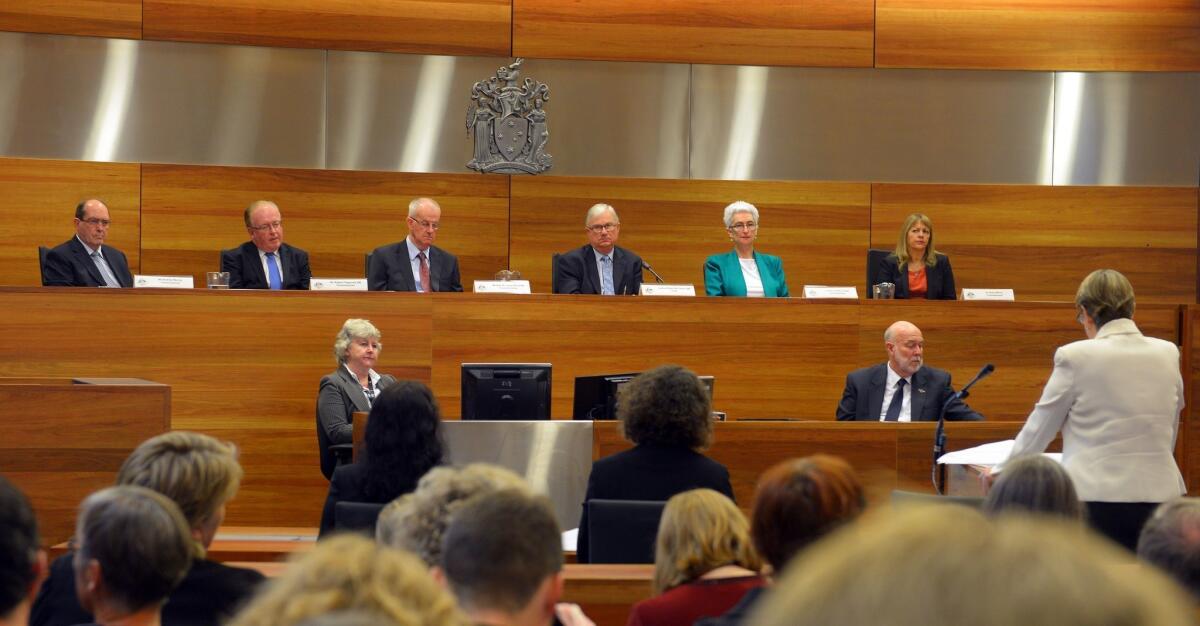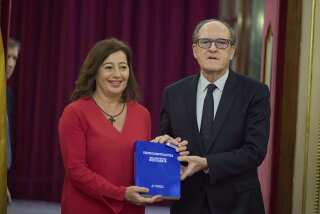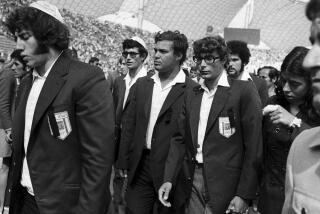Australia launches national inquiry into child sexual abuse

- Share via
Australia launched a sweeping national inquiry Wednesday into the sexual abuse of children, holding its first public hearing in a Melbourne court to start what a government statement called “a healing process for survivors and their families.”
Prime Minister Julia Gillard said the newly opened Royal Commission into the Sexual Abuse of Children will hear the stories of abuse victims and make recommendations about stopping such crimes, and can refer suspected abusers to the police for possible prosecution. It will cover a vast array of institutions including schools, churches, child-care centers, recreational groups and detention centers.
“We’ve let children down in the past as a country,” Gillard said in an interview with the Australian Broadcasting Corporation. “We need to learn what we can do as a nation to better protect our children in the future.”
The inquiry follows the revelation last year that hundreds of children had been abused by Roman Catholic clergy in Victoria state since the 1930s. The government was also galvanized by an open letter from a New South Wales police detective who accused the church of concealing abuse.
At least 5,000 people are expected to come forward with their stories, Justice Peter McClellan said at Wednesday’s hearing, which laid out the purpose behind the inquiry and some basic information about how it will work. The commission is seeking trained staffers to hear accounts by telephone, aware that both retelling the stories and hearing them could bring on trauma.
McClellan said that so far the commission has spent $22 million to set up a computer system and make other preparations for the thousands of expected victims, McClellan said. Holding hearings throughout Australia “will continue to require the commitment of very significant sums of public money.”
The sweeping probe has raised fears that accused abusers could be tarred without proof, even though the commission itself will not decide criminal cases.
McClellan said the commission would only publicly discuss accusations “where it believes the airing of these allegations is justified,” but didn’t detail how it would determine that. A person publicly accused of misdeeds would be allowed time to meet with the commission and their own attorney may question witnesses, a senior counsel assisting the commission said Wednesday.
The Catholic Church of Australia has pledged to cooperate and assist with the national inquiry. The church has rejected the accusations that it lacks proper procedures or has thwarted the police, as the detective alleged in his letter, but said earlier this year that it would participate fully and “embark on its own processes of atonement and healing.”
The Australian inquiry is far broader than commissions on sexual abuse in the United States, which have tended to look at scandals at specific institutions such as Penn State University or the military, said Scott Berkowitz, president and founder of the Rape, Abuse and Incest National Network.
Focusing on a single system can be helpful in reaching “more actionable conclusions,” said Berkowitz, who added that he couldn’t weigh in on whether it was a good strategy for Australia in particular. What is crucial is whether its findings are used to make real changes, he said.
“The fact that they’re devoting such national attention to this cause is great,” Berkowitz said. “An entire country comes together like this and recognizes this is such a big problem that it needs national attention and concerted effort to solve.”
ALSO:
Spanish princess called to testify in corruption probe
Coup thwarts search for Ugandan warlord Joseph Kony
Survey: Young Pakistanis have doubts about future, democracy
More to Read
Sign up for Essential California
The most important California stories and recommendations in your inbox every morning.
You may occasionally receive promotional content from the Los Angeles Times.










